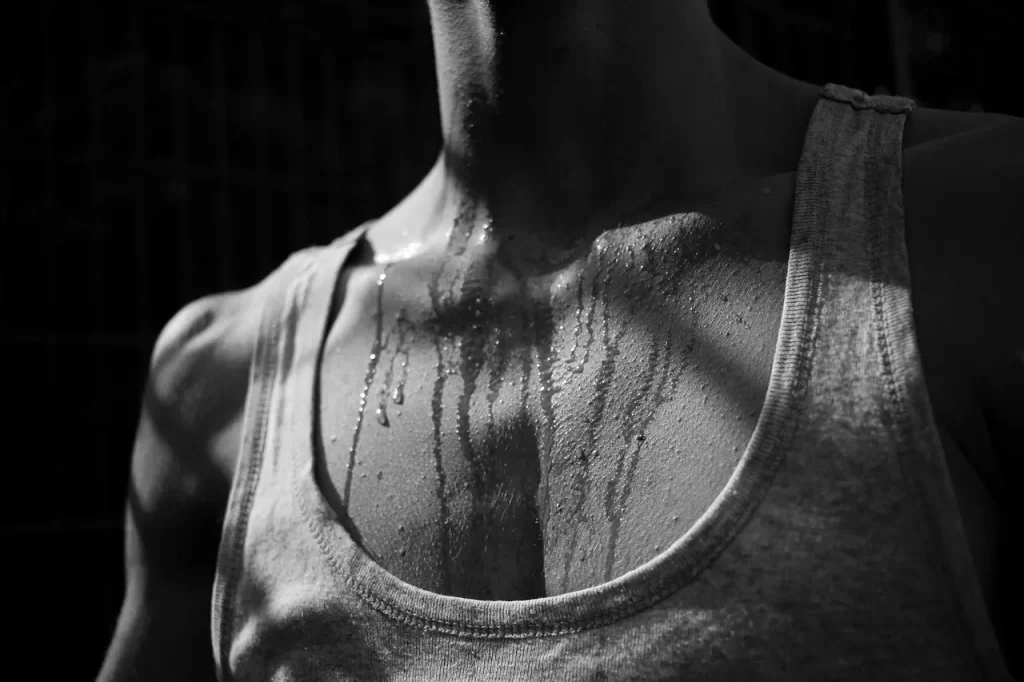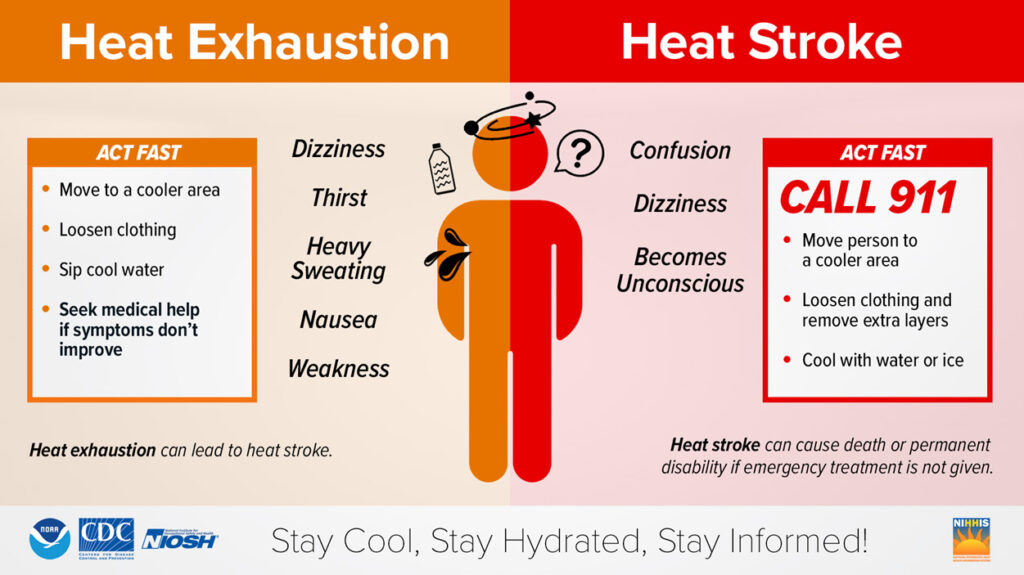
By Skyler Baldwin | A devastating heat wave that is keeping feel-like temperatures above 100 degrees is likely to get worse this weekend, forecasters say.
Heat advisories and warnings are in place from Arizona to Florida, impacting more than 111 million people, according to an Associated Press report. Some cities, like Phoenix, have registered temperatures above 110 degrees Fahrenheit for 13 consecutive days.
On Friday and Saturday in Columbia and Florence, temperatures will be in the low- to mid-90s, but the heat index for each will be 104 degrees to 106 degrees, according to the National Weather Service (NWS). In the Upstate, hazardous conditions will lead to triple-digit heat indices. Along the coast, temperatures may approach 90, but the heat index in Charleston will soar to the 100s. Myrtle Beach may get afternoon thunderstorms both days to keep the temperatures and heat index a little lower.
And it is going to get worse before it gets better, according to the NWS. More than 27 million people across the U.S. are expected to experience an air temperature or heat index above 110 degrees by early next week. Some areas in the Southwest may push closure to 130 degrees.
“Unfortunately, the long-term outlook through the weekend and into next week is for an increasingly significant and oppressive heat wave,” a recent NWS bulletin said.
What to watch for during extreme, dangerous heat

Prolonged exposure to extreme heat puts people at risk of several different health concerns, including heat stroke and heat exhaustion. It can also exacerbate other underlying health conditions like asthma.
“Make no mistake about it: This heat is deadly, and being in it for long periods of time is deadly,” Dr. Matthew Levy of the Johns Hopkins University School of Medicine said in a CNN report.
Be aware of the following warning signs and be prepared to take action, experts say.
- Heat cramps. This is often the first sign that the body is having trouble with the heat. Look out for heavy sweating, muscle pains and muscle spasms.
- What to do: Stop physical activity immediately and move to a cooler place. Seek medical attention if cramps last longer than an hour.
- Heat exhaustion. Heat exhaustion often preludes heat stroke and is an immediate sign of danger. Watch for a rapid pulse, flushed skin and profuse sweating as your body temperature increases. Heat exhaustion often leads to a mild form of shock.
- What to do: Loosen your clothes, place a cool wet cloth on your body or take a cool bath. Sip water slowly.
- Heat stroke. Heat stroke is a life-threatening condition that occurs when the body’s temperature control systems fail. Look out for severe headaches, confusion, nausea, dizziness and in severe cases, loss of consciousness.
- What to do: The body temperature can rise so high that brain damage and death may result if the body is not cooled quickly. A person who is experiencing heat stroke needs immediate medical attention.
- More info: Heat.Gov.
Tips for staying cool this summer
Braving the heat is a necessary part of summer. After all, life doesn’t stop just because the thermometer starts bubbling. So whether you’re heading to the pool or work, here are a handful of helpful tips to keep your temperature low.
Give yourself time to acclimatize. When a heat wave strikes, your body needs time to adjust. But it can take your body days to adjust properly. So if you’re planning a trip or vacation, plan to spend short periods in the heat in the days leading up to it.
Drink plenty of water. One of your body’s most robust cooling mechanisms is sweating, which rapidly lowers your body temperature. But it also drains you of water, so be sure to keep your bottle topped off and chilled. Don’t drink it all at once either, it’s better to consistently sip cool water than to down it in cups.
Wear loose, light clothing. If you’re spending time in the heat, what you wear matters. Seek lighter colors, because they tend to reflect heat rather than absorb it, and stay away from tight clothing, which blocks airflow and traps heat against your body.
Avoid alcohol. Go for a mocktail instead, as alcohol dehydrates you much faster, making it easier for your body to succumb to the heat in dangerous ways. And too much of it can impair your judgment, making it easier to miss the warning signs of heat exhaustion and even heat stroke.
Be aware of your car’s temperature. It’s easy to forget just how hot it can get inside of your car, but vehicles heat up incredibly quickly, even in moderate heat, due to a miniature greenhouse effect. This can be especially dangerous for children.
Skyler Baldwin is a reporter with the Charleston City Paper.


